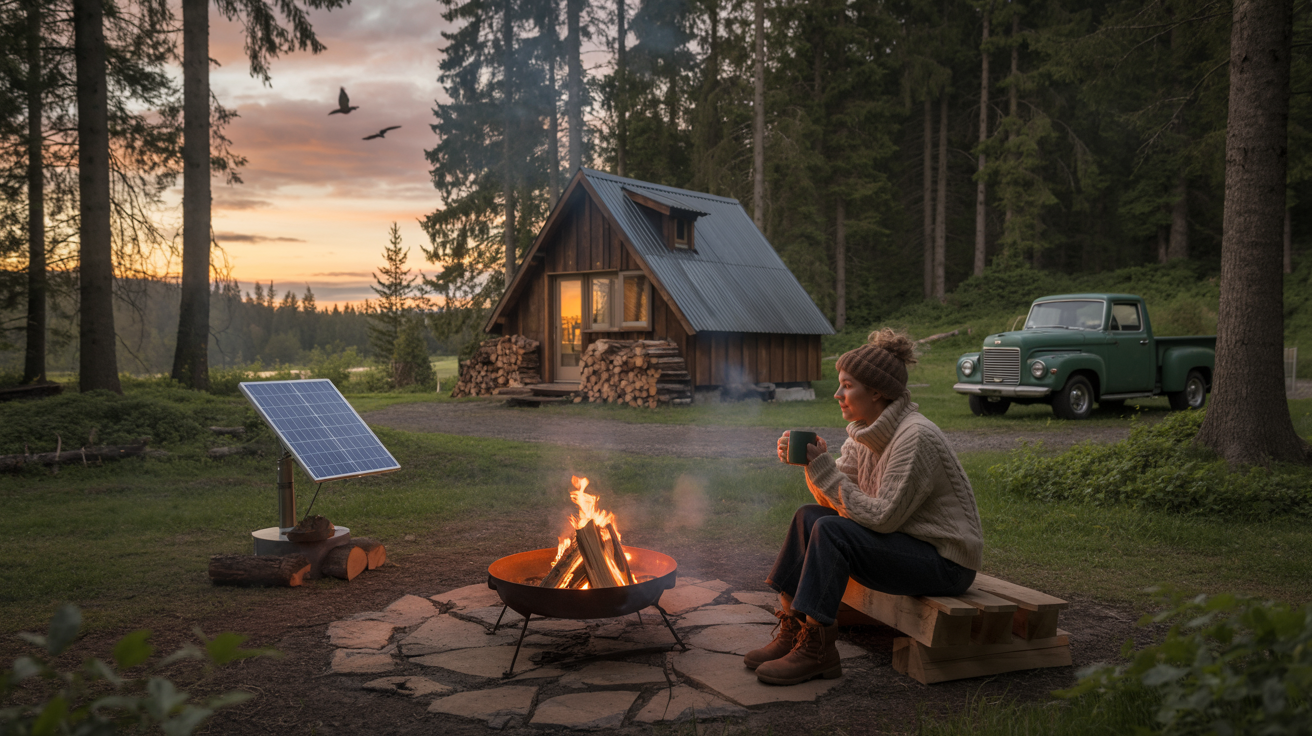Off-Grid Living: Freedom, Fulfillment, and Finding Your Own Path
What does it really mean to live off the grid?
For some, it’s the dream of cozy cabins, solar-powered independence, and mornings that begin with birdsong instead of traffic. For others, it’s a radical rejection of modern dependence—trading convenience for self-reliance. Whatever your reason, off-grid living is more than a lifestyle—it’s a philosophy.
The Allure of Off-Grid Life
There’s a unique joy in waking up knowing your power is harvested from the sun, your water is collected with care, and your meals come from the land beneath your feet. Many off-gridders describe a sense of peace that’s hard to put into words.
"It’s like the world slows down. You stop running after things and start experiencing them." – @HighDesertHomestead, Instagram
For van-lifers and cabin dwellers alike, the off-grid life represents a return to something more elemental. Something real.
Mini List: Common Motivations for Going Off-Grid
- Desire for self-reliance and independence
- Environmental sustainability and reduced carbon footprint
- Financial freedom from utility bills and rent/mortgages
- Need for solitude or spiritual reconnection
- A drive to challenge oneself and learn forgotten skills
But It’s Not All Rainwater and Sunshine
There are hardships—some expected, others surprising. Weather can dictate your mood and schedule. Equipment fails. Isolation creeps in. And while there's empowerment in doing it yourself, burnout is real.
Take Jake, for example—a personal friend in the van-life community. After two months of living out of his converted Sprinter, he shared with me:
“I was chasing sunsets and freedom, but I didn’t expect how much I’d miss running water or just being able to plug something in without thinking.”
Eventually, Jake found rhythm. He learned to love the quiet nights and the challenge of building a morning routine around solar availability. But it took time—and humility.
Quick Tips for Thriving Off-Grid
- Start small: Don’t leap into complete disconnection—practice partial off-grid living before making big moves.
- Know your climate: Your solar and water setup must match your environment.
- Build community: Even off-gridders need advice, support, and sometimes backup power.
- Keep a maintenance log: Track your solar, batteries, filters, and systems.
- Expect the unexpected: Budget extra for repairs and sudden gear upgrades.
Confronting the Stigma
Let’s address the elephant in the woods: some people see off-grid living as extreme, fringe, or even irresponsible. There’s a persistent stereotype that paints off-gridders as “dropping out” or “anti-society.”
But talk to anyone truly living off-grid, and you'll find thoughtful, skilled individuals who are *intentionally* choosing their version of success. Many still work remotely, homeschool, engage in community projects, and contribute meaningfully—just on their own terms.
“Living off-grid isn’t about escaping the world. It’s about engaging with it more deliberately.” – Commenter on r/SimpleLiving
Tools of the Trade (in General Terms)
While we won’t name brands, here’s a glimpse at what many off-gridders rely on daily:
- Solar panels and battery banks
- Composting or dry toilets
- Rainwater catchment and filtration systems
- Wood stoves and propane cooking gear
- Portable power stations and inverters
- Mobile Wi-Fi routers or Starlink setups
None of these are silver bullets—but together, they form a toolkit for self-sufficiency.
Closing Thoughts: You Don’t Have to Be “All In” to Begin
You can live off-grid full-time, part-time, or even just weekends at a time. What matters is intention. Whether you’re planning to build a cabin, convert a van, or simply grow your own food, you’re already taking steps toward independence.
And yes, it will test you. But it will also teach you—about resilience, rhythm, and how little you truly need to live well.
“It’s not always easy. But I’ve never felt more alive.” – @ModernForager, TikTok
So here’s to unplugging. To getting dirt under your nails. To failing, learning, and trying again. Because off-grid living isn’t just about where you live—it’s about how you live.

